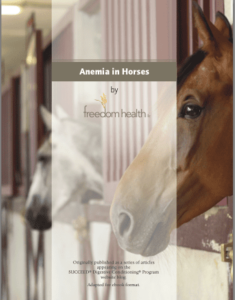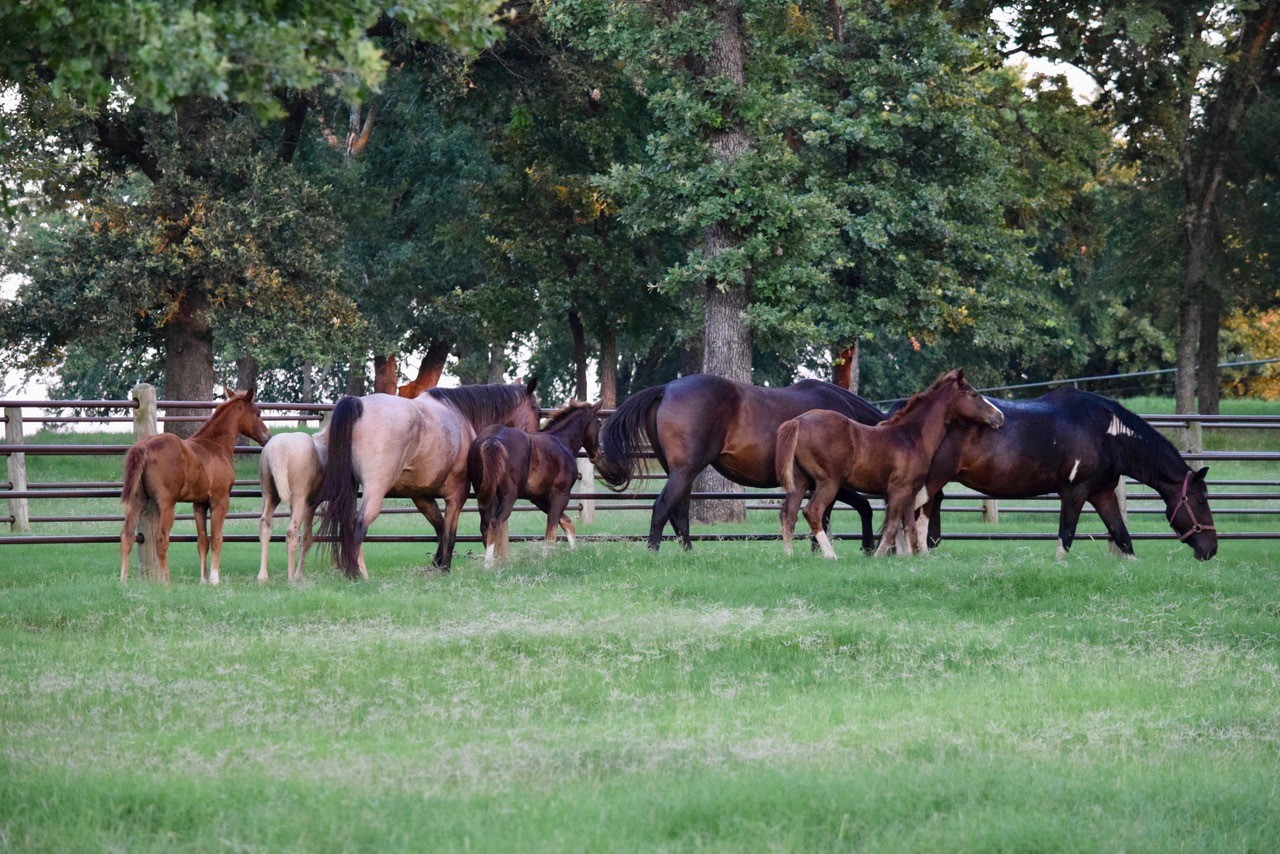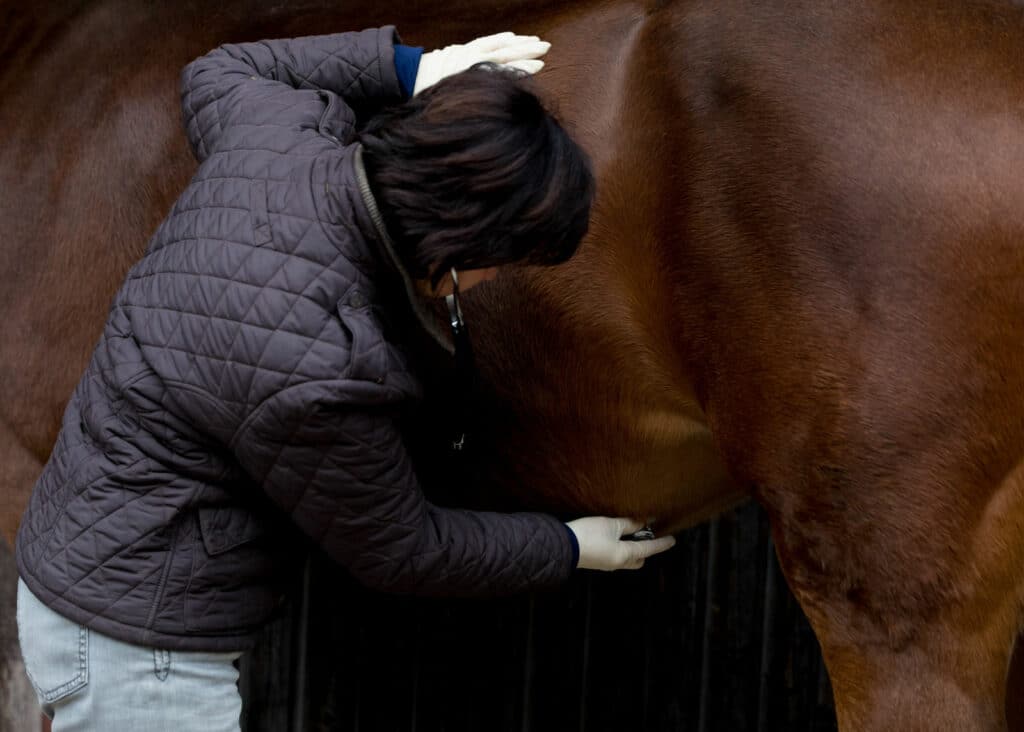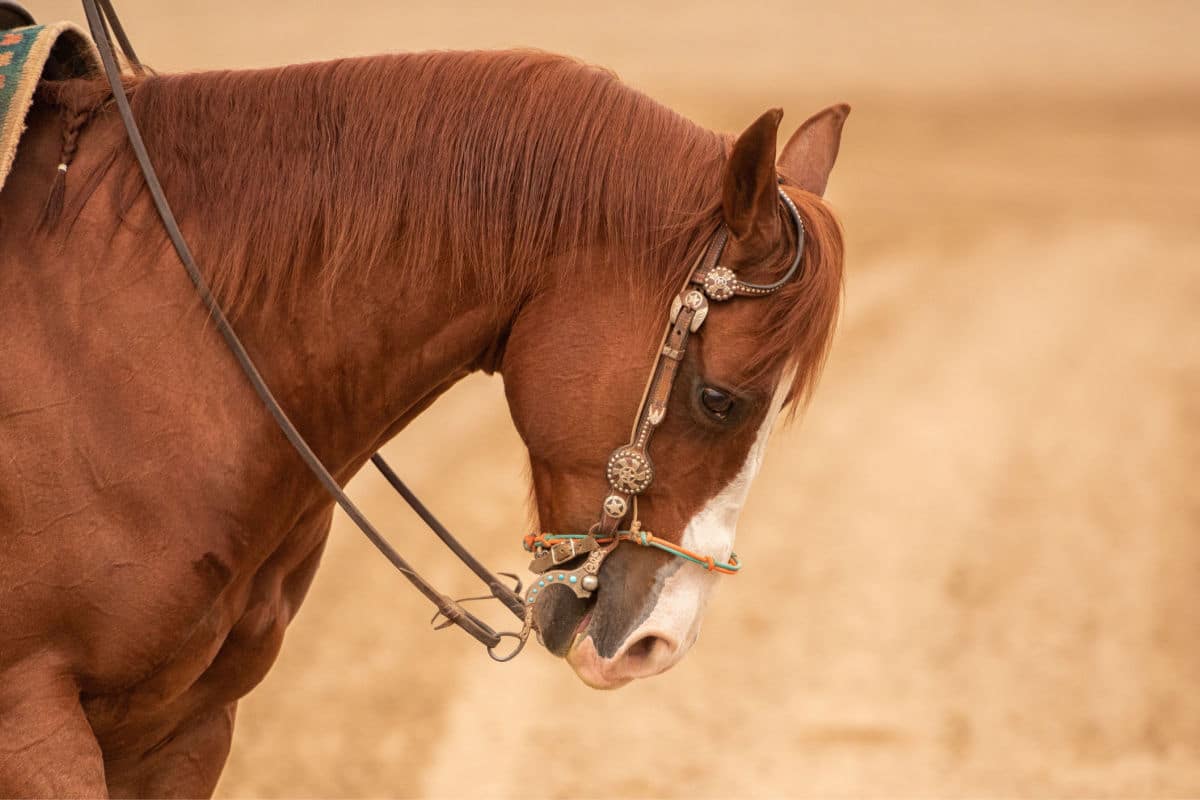Anemia in horses is rarely discussed outside of racing circles, but is an insidious condition with significant impact on a horse’s health and performance ability. In this five part series, we will provide a comprehensive look at equine anemia: what anemia is and how it affects horses, what causes equine anemia, signs and symptoms, ulcers and anemia, and treatments. Subscribe to the SUCCEED blog to follow the complete series.
For years our staff veterinarian and primary researcher Franklin Pellegrini, DVM, along with many other veterinarians, noticed low-grade anemia plaguing performance horses. This was especially apparent in his work as both a veterinarian and trainer with thoroughbred and standardbred racehorses in Ohio. This observation started us on a research path that revealed alarming rates of gastric and colonic ulceration in horses at all performance levels.
As we’ve stressed throughout this series, anemia is always a symptom of another disease in horses. One of the most common causes of anemia in horses is blood loss and, in turn, one of the most common conditions that results in chronic anemia from blood loss may be bleeding ulcers in the gut.
Here’s a look at the link between equine ulcers and anemia, and why it’s important to be more aware of your horse’s digestive health.
Ulcers Found In More Than 60% of Horses
Many misconceptions exist about ulcers and horses. Some of the most widely held beliefs are that they only affect the horse’s stomach (gastric ulcers), and they only plague high performance horses, horses that travel frequently, or horses that are nervous or stressed. Research shows these beliefs are erroneous and ulcers are a very real concern for the modern horse in general:
- A variety of published research papers show that over 80% of performance horses suffer from gastric ulcers, or ulceration of the stomach lining.
- In our own original post-mortem analysis published in 2005, we found the incidence of gastric ulceration in horses to be 88%.
- We also found that 63% of the horses studied had ulcers in the colon (hindgut).
- Thus, a full 97% of the horses had ulceration somewhere, and 54% had ulceration in both the stomach and colon.
In subsequent studies throughout recent years, we’ve found ulceration incidences to be even higher. Meanwhile, throughout the equestrian world, awareness of colonic ulceration is growing.
Why Anemia May Indicate GI Ulcers in Some Horses
Anemia is a reduction in red blood cell mass, and can be characterized by a low red blood cell count or low packed cell volume (a test that measures percentage of red blood cells). There are three different causes of anemia: loss of blood, destruction of blood, and not producing enough blood. By far the most common type of anemia in horses is related to a loss of blood, particularly blood loss due to chronic inflammation or disease.
Gastric and colonic ulcers are lesions in the sensitive lining of a horse’s stomach or colon, respectively. Low-grade ulcers simply cause inflammation and reddening. They can progress from there to open wounds that bleed, continuously or intermittently, moderately or heavily. Because ulcers require intervention to treat, and rarely resolve on their own, they become a chronic problem for the horse when left unrecognized and unresolved.
This chronic, perhaps intermittent, bleeding in the GI tract from ulceration can result in enough blood loss that the horse becomes anemic. In addition to the health and performance problems caused by the ulcers, the reduction in red blood cells decreases the horse’s ability to deliver oxygen throughout the body – impacting metabolism, muscles, and energy.
Additionally, blood test results that are on the lower end of the normal range may actually signal a problem in a performance horse. Horses that are in top performance condition tend to have higher red blood cell counts/percentages, therefore a normal but low result could actually indicate low-grade anemia. This could provide an early warning sign for ulcers in the performance horse.
If your vet diagnoses your horse with anemia based on symptoms and blood tests, the next step is to identify the underlying problem causing it. Because ulcers are so widespread and common among horses today, they are a logical place to begin with ongoing diagnostics.
Remember that while there is a link between anemia and ulceration in some horses, not all horses with ulcers are anemic.
Fecal Blood Testing to Identify Ulcers
Once a horse has been confirmed anemic, there is a simple and inexpensive fecal blood test your veterinarian can use to identify occult bleeding that may be occurring in the gastrointestinal tract. The SUCCEED Equine Fecal Blood Test is used to identify trace amounts of albumin and hemoglobin, proteins found in blood, in a horse’s feces. A positive result for only albumin indicates bleeding in the hindgut, while a positive result for only hemoglobin indicates bleeding in the stomach. A positive for both indicates the horse may be bleeding in both the fore and hind guts.
A positive result on the SUCCEED FBT may indicate that your horse is suffering from ulcers. Your vet can confirm or rule out gastric ulcers with a scope, but colonic ulcers are impossible to confirm visually. Thus, a diagnosis of anemia combined with a positive fecal blood test provides a good indication that a horse could be suffering from colonic ulceration. This is especially helpful if the anemic horse has scoped clean for gastric ulcers.
Promote Your Horse’s Digestive Health to Resolve Ulcers and Related Anemia
That horses are so prone to developing ulcers is a result of the demands on their bodies and digestive systems from travel, competition, and modern feed and care routines. In particular, undigested starch from cereal grains reaching the hindgut – which is designed to digest stemmy, fibrous foods – poses a a major issue for gi tract health in horses across the board. It is known to cause both ulcers and colic.
In order to resolve ulcers and anemia, you need to work with your vet to first treat the ulcers and improve overall gi tract health. This can include:
- Treating gastric ulcers with omeprazole
- Supporting the health of the hindgut
- Reducing cereal grains in the diet and feeding more frequently in smaller amounts
- Providing free access to quality hay or pasture grass
- Feeding beet pulp instead of grain to boost calories
- Use slow feeders or mix chaff with grain feeds to increase chewing time
Once a horse’s ulcers have healed and the bleeding stopped, the anemia will resolve on its own, assuming the ulcers are the sole cause of the anemia. If not, then additional diagnostics are in order, to determine what other factors may be contributing to the anemia. Either way, be aware that it takes the healthy equine body approximately 2-6 weeks to replenish red blood cells – and it doesn’t require any additional help to do so.
Next Up: Treating Anemia in Horses
There are several popular methods for treating anemia in horses, including supplementing with iron and B12. The reality is that neither has much affect as long as the horse continues to suffer from the condition that is causing the anemia. The key is to get to the root of the problem and treat that, allowing anemia to resolve on its own.
Be sure to subscribe to the SUCCEED Blog and check back for the final installment in the Anemia in Horses Series reviewing equine anemia treatment methods.
 Get Your Free Anemia in Horses E-Book
Get Your Free Anemia in Horses E-Book
Did you find this article helpful? Download your free copy of the Anemia in Horses e-book and take the whole series home with you as a printable PDF to read and share at your leisure.



